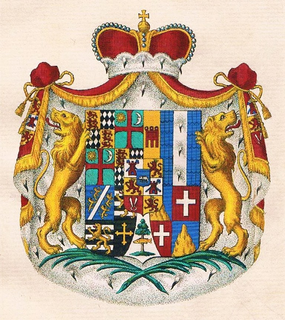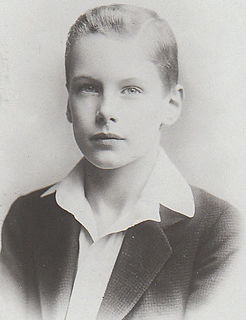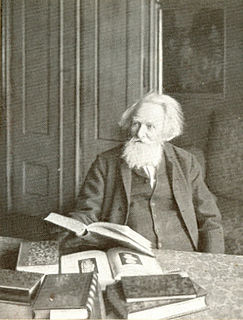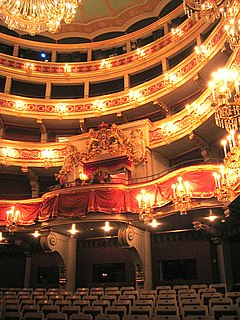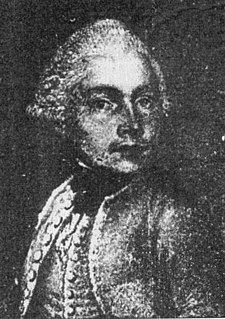Johann Baptist Großschedl von Aicha (5 February 1577 – 1630s) was a German nobleman, alchemist and esoteric author. [1] [2] The German "von Aicha" is a later supposition from the Latin "ab Aicha" on his publications, which may be related to Aiglsbach in Bavaria and the "Grossehedl von Perckhausen und Aiglspach" nobility, who originally came from Regensburg.

Aiglsbach is a town and municipality in the Lower Bavarian district of Kelheim, Germany, and a member of the Mainburg administrative partnership, a voluntary resource-pooling agreement with three neighbouring municipalities.

Regensburg is a city in south-east Germany, at the confluence of the Danube, Naab and Regen rivers. With more than 150,000 inhabitants, Regensburg is the fourth-largest city in the State of Bavaria after Munich, Nuremberg and Augsburg. The city is the political, economic and cultural centre and capital of the Upper Palatinate.
He was born 1577, according to a manuscript of his horoscope extant in the British Museum. [3] where he is also given the title eques romanus (Roman knight) suggesting a knight of the Germanic Holy Roman Empire, or Freiherr, which suggests identification with the family of two Grossschedel brothers, "Gebrüdern Groschedel," of Regensburg, whose elevation to nobility was granted in 1623, and the family's noble status was confirmed to Franz von Großschedl by Maximilian II Emanuel, Elector of Bavaria in 1691. [4]

The Holy Roman Empire was a multi-ethnic complex of territories in Western and Central Europe that developed during the Early Middle Ages and continued until its dissolution in 1806 during the Napoleonic Wars. The largest territory of the empire after 962 was the Kingdom of Germany, though it also came to include the neighboring Kingdom of Bohemia, the Kingdom of Burgundy, the Kingdom of Italy, and numerous other territories.
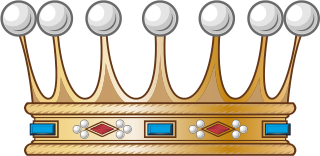
Freiherr, Freifrau and Freiin are designations used as titles of nobility in the German-speaking areas of the Holy Roman Empire, and in its various successor states, including Austria, Prussia, Bavaria, Liechtenstein, Luxembourg, etc. Traditionally it denotes the titled rank within the nobility above Ritter (knight) and Edler and below Graf and Herzog (duke). The title superseded the earlier medieval form, Edelherr.

Maximilian II, also known as Max Emanuel or Maximilian Emanuel, was a Wittelsbach ruler of Bavaria and a Prince-elector of the Holy Roman Empire. He was also the last governor of the Spanish Netherlands and duke of Luxembourg. An able soldier, his ambition led to conflicts that limited his ultimate dynastic achievements.
Another surviving manuscript of his can be found within the Manchester Medical Manuscripts Collection held by special collections at the University of Manchester Library. The manuscript has the reference MMM/23/2/1 and contains elements of a pharmacopoeia as well as references to the role of the zodiac and the works of Paracelsus and Jean Beguin. He also uses the title eques romanus in this manuscript.

Paracelsus, born Theophrastus von Hohenheim, was a Swiss physician, alchemist, and astrologer of the German Renaissance.
Jean Beguin (1550–1620) was an iatrochemist noted for his 1610 Tyrocinium Chymicum(Begin Chemistry) (Digital edition), which many consider to be one of the first chemistry textbooks. In the 1615 edition of his textbook, Beguin made the first-ever chemical equation or rudimentary reaction diagrams, showing the results of reactions in which there are two or more reagents. Modern rendering of this famous diagram, detailing the reaction of corrosive sublimate (HgCl2) with sulfide of antimony (Sb2S3), is shown below:


